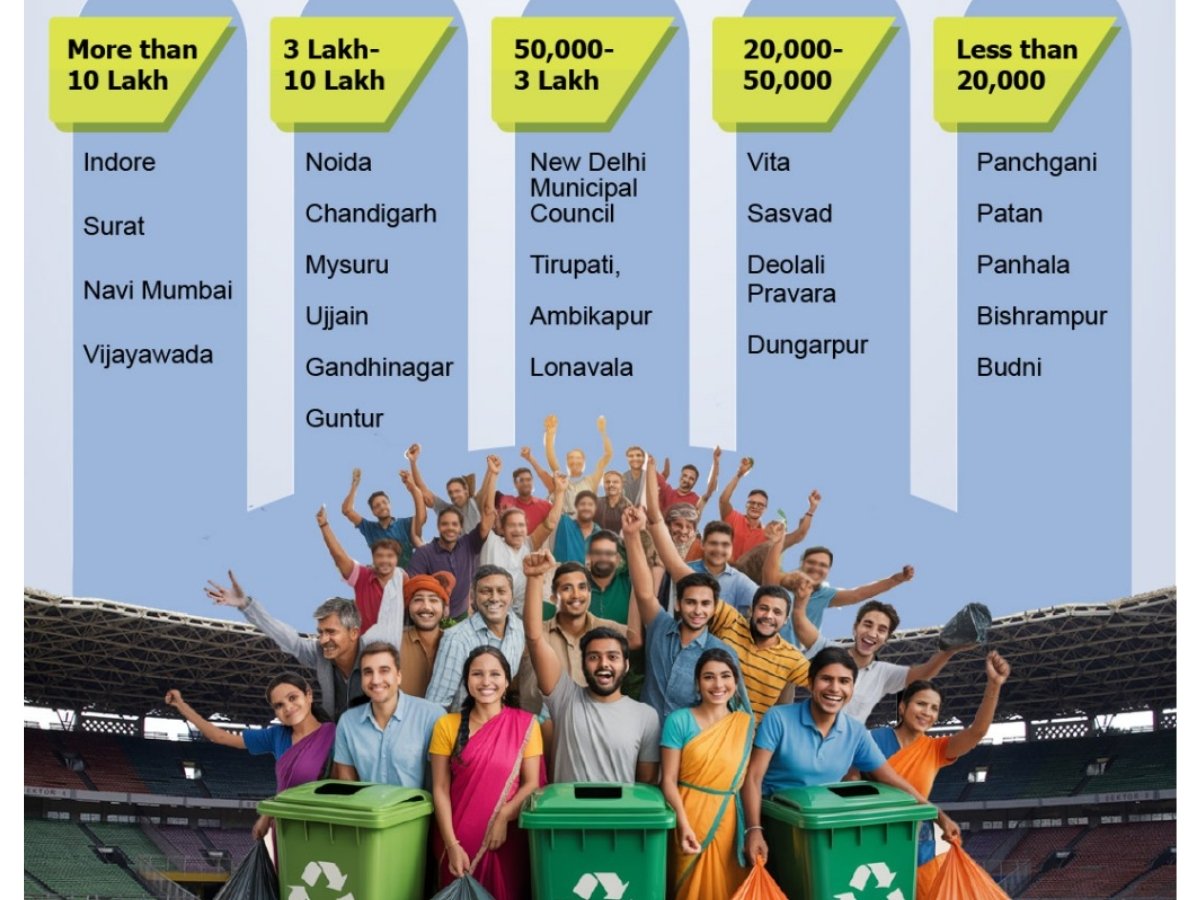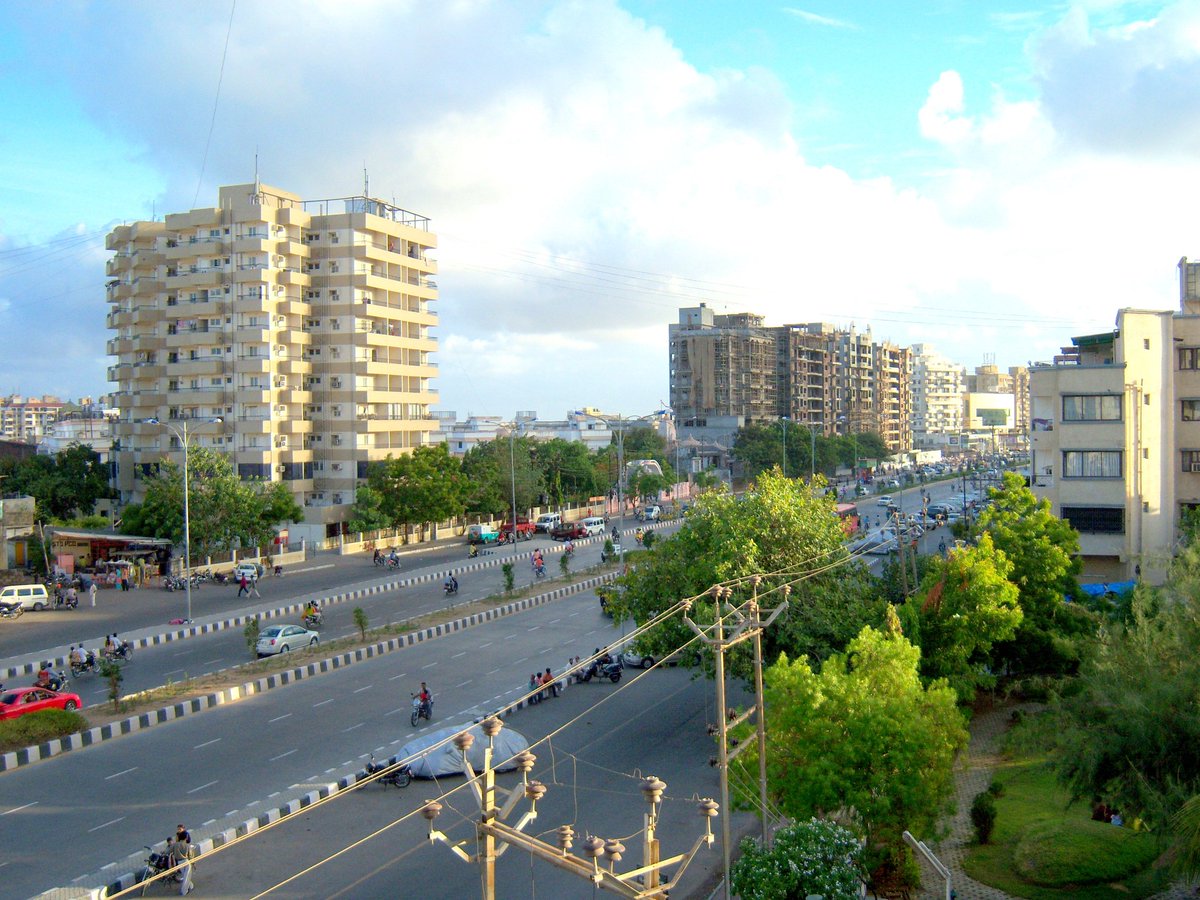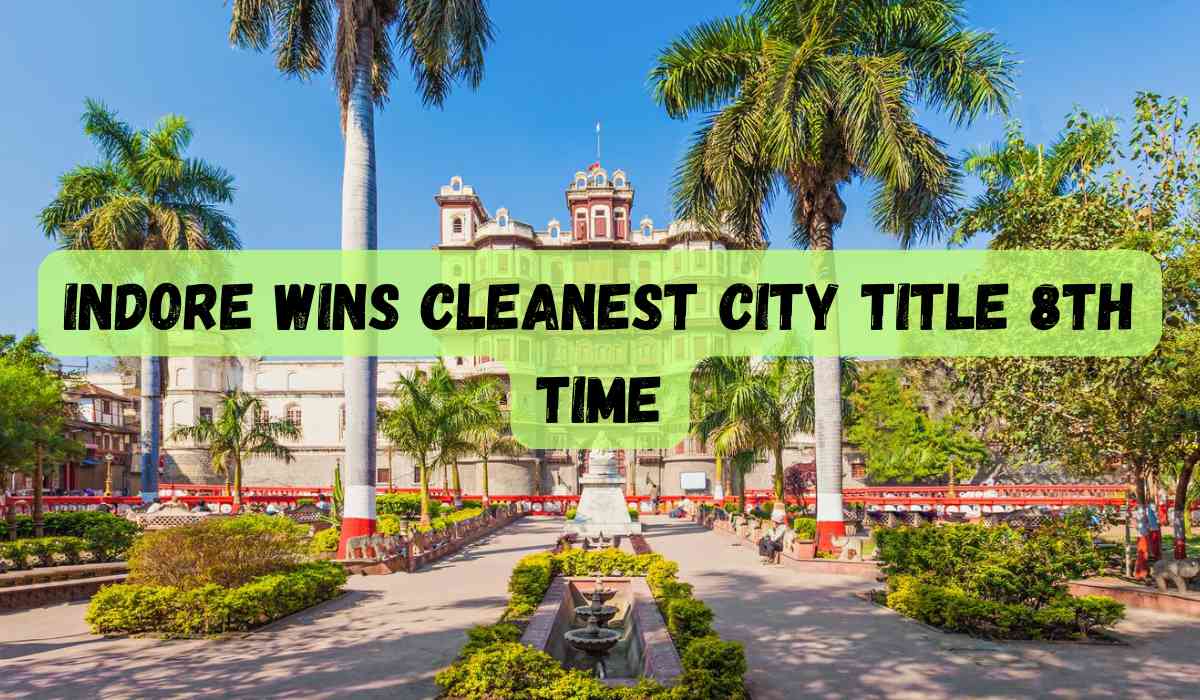In a country where chaotic urban sprawl and chronic sanitation problems are the norm, one city continues to defy the odds. Indore, Madhya Pradesh, has once again emerged as India’s cleanest city, clinching the top position for the eighth consecutive year in the Swachh Survekshan 2024–25, the flagship annual cleanliness survey conducted by the Ministry of Housing and Urban Affairs (MoHUA).
While the award has sparked pride and celebration, especially among Madhya Pradesh residents, a pressing question looms: Are we becoming too comfortable celebrating clean pockets while ignoring the larger, dirtier reality of India’s urban landscape?
Indore: A Symbol of Cleanliness and Civic Dedication
In a glittering ceremony held at Vigyan Bhawan, New Delhi, President Droupadi Murmu conferred the title of India’s cleanest city to Indore, in the presence of Union Housing and Urban Affairs Minister Manohar Lal and other dignitaries. The city’s unwavering commitment to cleanliness, robust waste management infrastructure, and citizen-driven participation have made it a benchmark for urban hygiene nationwide.
Indore's eighth consecutive victory didn’t come easy. It was elevated to the elite Super Swachh League Cities category, signifying excellence not just in cleanliness but also in sustainability, innovation, and urban management. The city has earned this crown through relentless innovation in waste segregation, recycling, composting, and community outreach programs.
#WATCH | Delhi: Indore won the title of India's cleanest city for the eighth time in a row. Surat stood second and Navi Mumbai third in the central government's annual cleanliness survey.
President Droupadi Murmu presented the Swachh Survekshan 2024-25 awards today. pic.twitter.com/FlnDPiS5Dq— ANI (@ANI) July 17, 2025
Madhya Pradesh: The Cleanliness Capital of India
Indore may have grabbed the headlines, but Madhya Pradesh as a whole has set an unprecedented benchmark in this year’s survey. In total, 101 of its cities ranked in the national Top 100 across five population categories — a staggering 20.2% representation among the 500 evaluated cities.
Other notable cities from MP include:
-
Bhopal: Ranked second among India’s big cities, showcasing massive improvement from previous years.
-
Jabalpur: Entered the top five cleanest cities for the first time ever, also receiving a prestigious seven-star rating and being listed among India’s water surplus cities.
-
Katni: Secured the eighth position nationally.
-
Ujjain: Earned a spot in the Super Swachh League for cities with a population between 3 to 10 lakh.
This performance reflects the state’s focused strategy — increasing Urban Local Body (ULB) participation from 378 to 383 this year, emphasizing grassroots sanitation campaigns, and integrating cleanliness into civic identity.
Chief Minister Mohan Yadav expressed pride in the achievement, calling it “a new benchmark for cleanliness across the country.” Echoing his sentiments, MP’s Urban Administration Minister Kailash Vijayvargiya stated, “This feat resonates with pride across the state.”
Hon'ble President, Smt. Droupadi Murmu attends #SwachhSurvekshan 2024-25 Awards.
Watch the live stream here:https://t.co/o6ilWPZeiG#SS2024— Swachh Bharat Urban (@SwachhBharatGov) July 17, 2025
National Survey: A Record-Breaking Movement
The Swachh Survekshan 2024–25 broke its own records as the world’s largest urban cleanliness survey, with:
-
Over 4,500 urban local bodies assessed,
-
More than 3,000 trained assessors conducting inspections over 45 days,
-
Engagement of 14 crore citizens,
-
Evaluation based on 10 key parameters and 54 performance indicators,
-
A guiding theme of "Reduce, Reuse, Recycle."
For the first time, cities were grouped into five population-based categories to ensure fairer assessments. Apart from Super Swachh League Cities, awards were distributed in categories like:
-
Top 3 Clean Cities by Population Size (e.g., Noida, Chandigarh, Mysuru),
-
Special Categories: Ganga Towns, Cantonment Boards, SafaiMitra Suraksha, and Mahakumbh cities,
-
State-Level Recognitions for Promising Cities.

Cleanliness Beyond Indore: Other Notable Winners
-
Surat and Navi Mumbai followed Indore to secure the 2nd and 3rd spots, respectively.
-
In the 3–10 lakh population category, Noida bagged the top spot, followed by Chandigarh and Mysuru.
-
Lucknow, while not at the top of the rankings, demonstrated community participation with a massive cleanliness drive on July 10, celebrating Defence Minister Rajnath Singh’s 74th birthday, under the leadership of Mayor Sushma Kharkwal.
These examples indicate a nationwide ripple effect of the Swachh Bharat Mission, but they also highlight a deep divide between success stories and persistent neglect.
But Wait—What About the Rest of India?
As India celebrates Indore’s stellar run and Madhya Pradesh’s sweeping wins, it’s crucial to step back and examine the broader reality. Yes, certain cities are beacons of progress, but most Indian cities and slums remain plagued by filth, inadequate sewage systems, and unmanaged waste.
Take a walk through the bylanes of urban India — in Delhi’s unauthorized colonies, Mumbai’s Dharavi, or Kolkata’s overburdened fringes — and you’ll encounter overflowing garbage, clogged drains, open defecation, and toxic air. These realities rarely make it into the spotlight. The question is: Have we become too quick to celebrate isolated wins while ignoring systemic, nationwide failures?
Despite over a decade of Swachh Bharat initiatives, millions still live amidst squalor. Open landfills burn night and day. Manual scavenging, though banned, still claims lives. Even the very cities that top the cleanliness charts often hide slums and underdeveloped areas that remain untouched by the sanitation revolution.

The Dissonance: Pride vs. Complacency
It’s tempting — and emotionally satisfying — to bask in the glory of awards and rankings. And cities like Indore deserve every bit of praise for their consistent performance. However, cleanliness cannot be reduced to a scoreboard metric. It must translate into universal access to sanitation, inclusive urban planning, and equitable development.
Are we okay with a clean main street if the back alleys reek? Is it enough for a city to win an award if entire neighborhoods within it still struggle with basic sanitation?
These are uncomfortable questions, but ones that need urgent attention.
Celebrate Progress, But Demand More
The Swachh Survekshan 2024–25 proves that change is possible — with the right policies, leadership, and civic participation. But it also underscores the urgent need for expanding the definition of cleanliness — from visible sanitation to invisible dignity, from elite zones to every single street, slum, and settlement.
As we celebrate Indore’s 8th crown, let’s not let medals mask the muck. Let’s use these moments of pride not just for applause but for accountability — and ensure that one city’s shining example lights the way for an entire nation still struggling with its filth.
With inputs from agencies
Image Source: Multiple agencies
© Copyright 2025. All Rights Reserved Powered by Vygr Media.






















